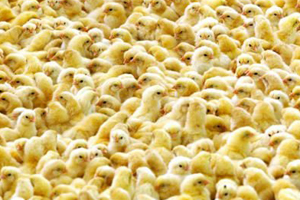Building Australia’s poultry research capability

Poultry is regarded as the animal protein of the future due to its high efficiency of production and low emissions. Australia, for example, has become one of the highest consumers of poultry meat, with annual consumption increasing from less than 5kg per person in the 1960s to 45kg per person today.
The important driver of productivity gain is innovation, which depends on world-class researchers and first class facilities, writes Mingan Choct of Australian poultry body, Poultry CRC. http://www.poultryhub.org/ In Australia, the existence of first-class facilities is usually the result of the sustained effort and leadership of key researchers, highlighting the fact that human capital development is the most important investment for an industry’s future. The Poultry CRC’s objective is to lay solid foundations for the poultry industry in Australia through funding research and supporting education.
“We have 23 industry organisations, 10 universities and 4 research institutes as participants. We have a total resource of approximately $98.5 million over 7.5 years, of which 27.4% comes from the government with the remainder from our participants. Of our cash budget, approximately 61% goes to research, 17% is used for education, 15% is used in administration, and 7% is put towards utilisation activities,” says Choct.
“To date, 23 of our 37 participants are active contributors to our research and education effort with the top providers being CSIRO, The University of Melbourne, The University of Adelaide, University of New England, The University of Sydney, Queensland Department of Agriculture, Fisheries and Forestry, The University of Queensland, South Australian Research and Development Institute, Murdoch Children’s Research Institute, Monash University and The Ohio State University. The diverse range of organisations involved in RD&E in poultry is a great indicator, and a safety net, for continued innovation in the Australian poultry industry.”
“The Poultry CRC has paid particular attention to education activities over the past ten years. In CRC1, we supported 26 postgraduate students, ten postdoctoral scientists and more than 20 veterinarians and poultry health professionals to complete the Avian Health Online course. Employment for our postgraduates has been balanced almost evenly between industry and research/academia.”
“Our education effort is continuing in CRC2 with 38 students pursuing their postgraduate degrees, seven interns working the industry, and over 200 company employees attaining vocational education certificates. The CRC is currently investigating an exciting new opportunity to help bridge the gap between researchers and industry.”













